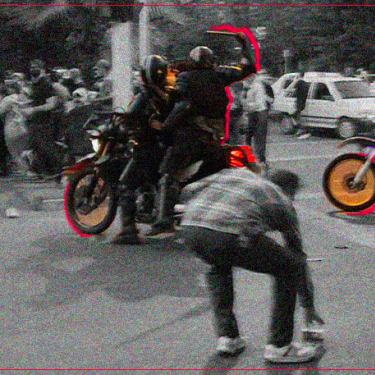RSF activates nine UN mechanisms in complaint about crackdown on journalists in Iran

Reporters Without Borders (RSF) calls on the UN to make every effort to obtain the immediate release of journalists who have been detained arbitrarily in an alarming escalation in attacks on reporters and the freedom to inform since 16 September.
The complaint sent by RSF to the UN yesterday (27 October) details the many forms that the dramatic crackdown on journalists is taking since the popular uprising began in Iran, including arbitrary detention, inhuman conditions of detention, violation of defence rights, physical violence, threats and harassment, searches without warrant and confiscation of equipment.
Those monitoring this relentless persecution of journalists by the authorities are especially concerned about women journalists, who are among the leading victims of the Iranian patriarchal regime's brutal response.
RSF’s complaint also draws the UN’s attention to the vast system of censorship established by the government and its dramatic consequences for the right to information. By targeting all means of communication and reducing Internet access to almost nothing, the Iranian authorities have left very few possibilities for its population and the outside world to have free access to reliable information.
“The severity of the crackdown in the field and the online censorship is unprecedented,” RSF advocacy director Antoine Bernard said. “Journalists are forced to take huge risks just to practice their profession, or they yield to the pressure to censor themselves. In response to violence that is likely to worsen in the weeks to come because the popular revolt is intensifying, the United Nations must demand that the Iranian authorities adopt immediate, concrete measures to safeguard the right to information.”
RSF’s complaint is addressed to nine UN “special procedure” - protective mechanisms established by the UN Human Rights Council – the special rapporteurs on freedom of expression, on the human rights situation in Iran, on the situation of human rights defenders, on violence against women, on the freedom of association, on torture, on the independence of judges, and on human rights while countering terrorism, and the UN Working Group on Arbitrary Detention.
Already the world’s third biggest jailer of journalists, Iran has become the biggest jailer of women journalists in the course of this crackdown. Long known as one of the world’s most dangerous countries for practicing journalism, the Islamic Republic is ranked 178th out of 180 countries in RSF's 2022 World Press Freedom Index.
